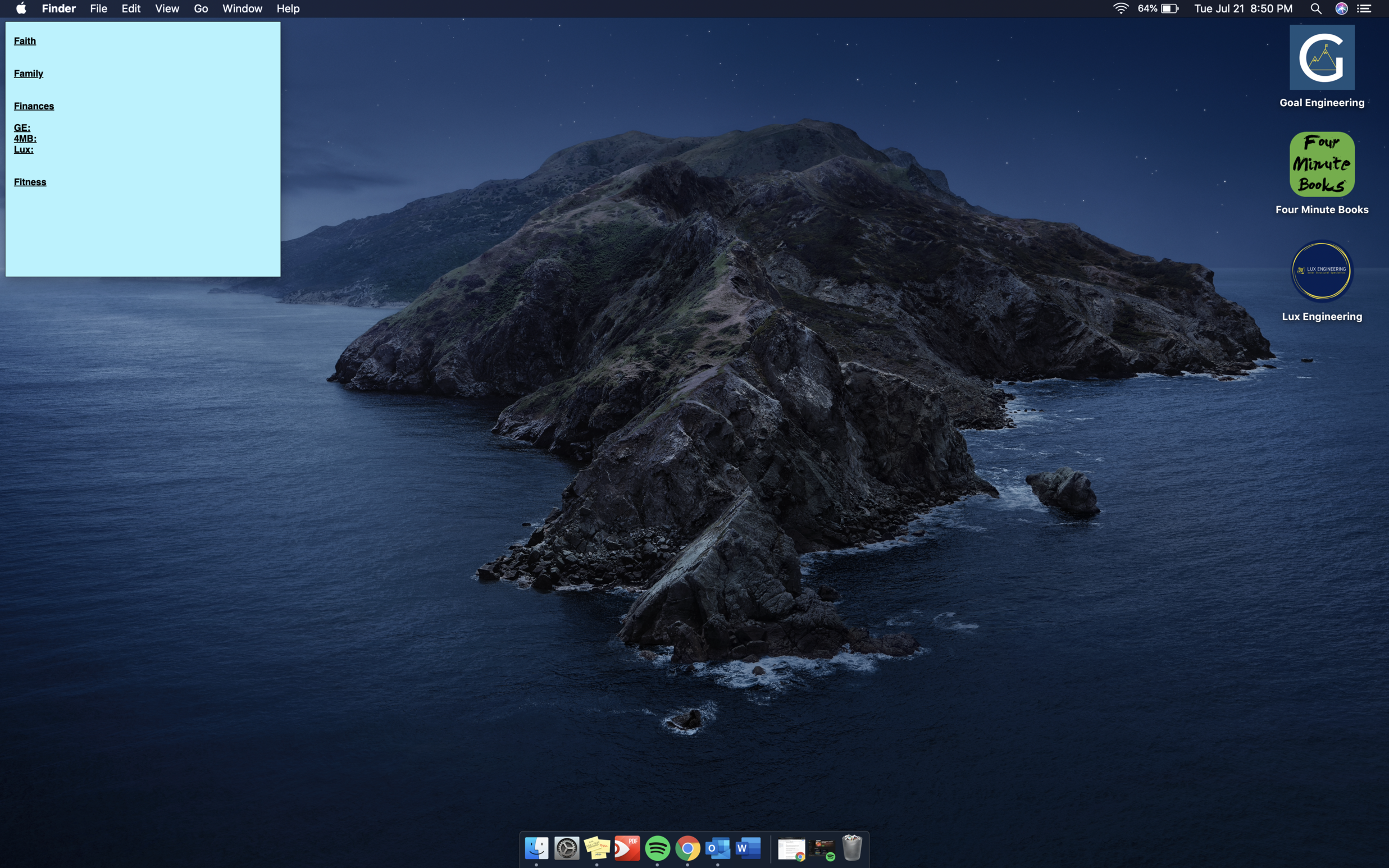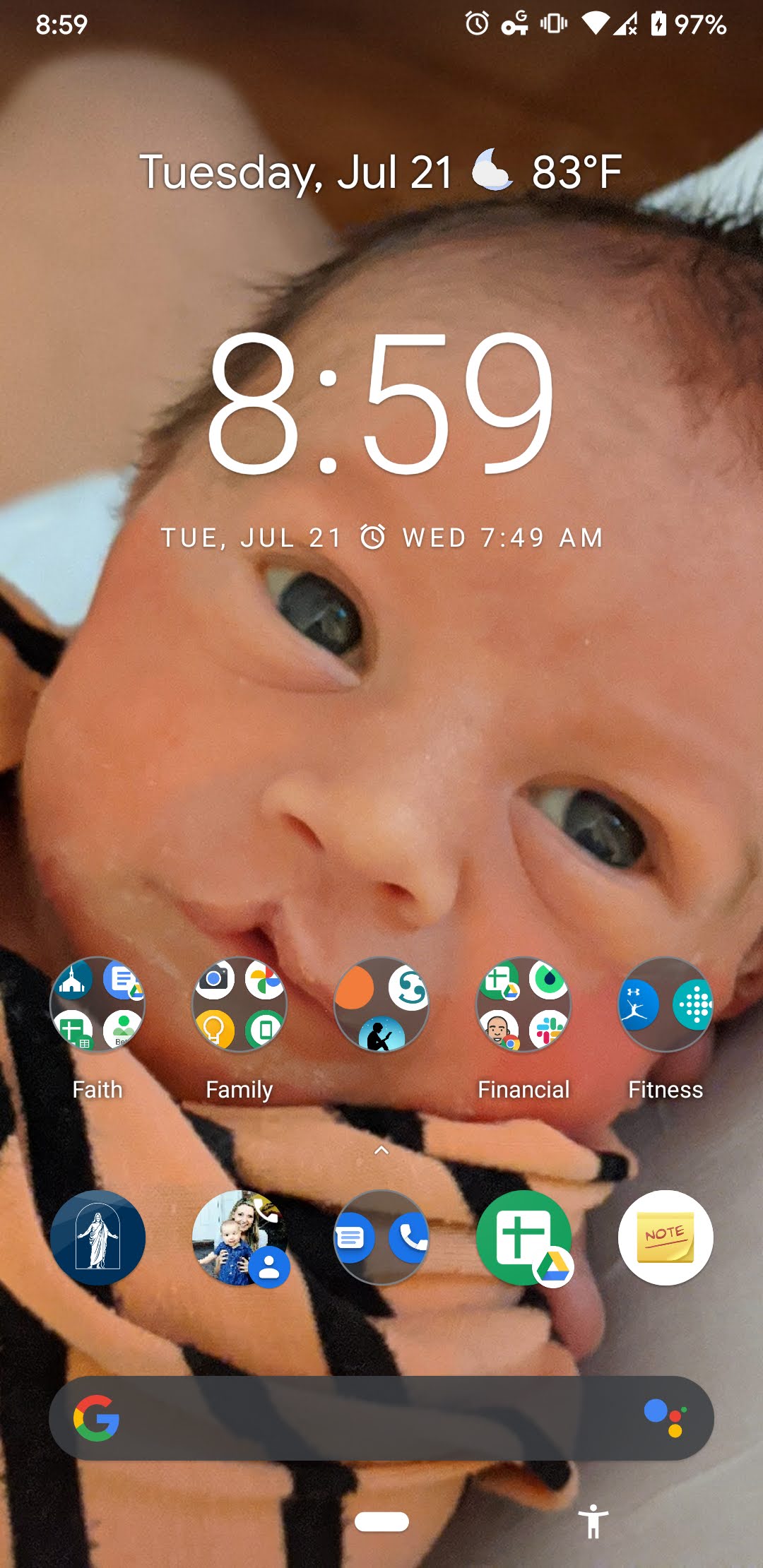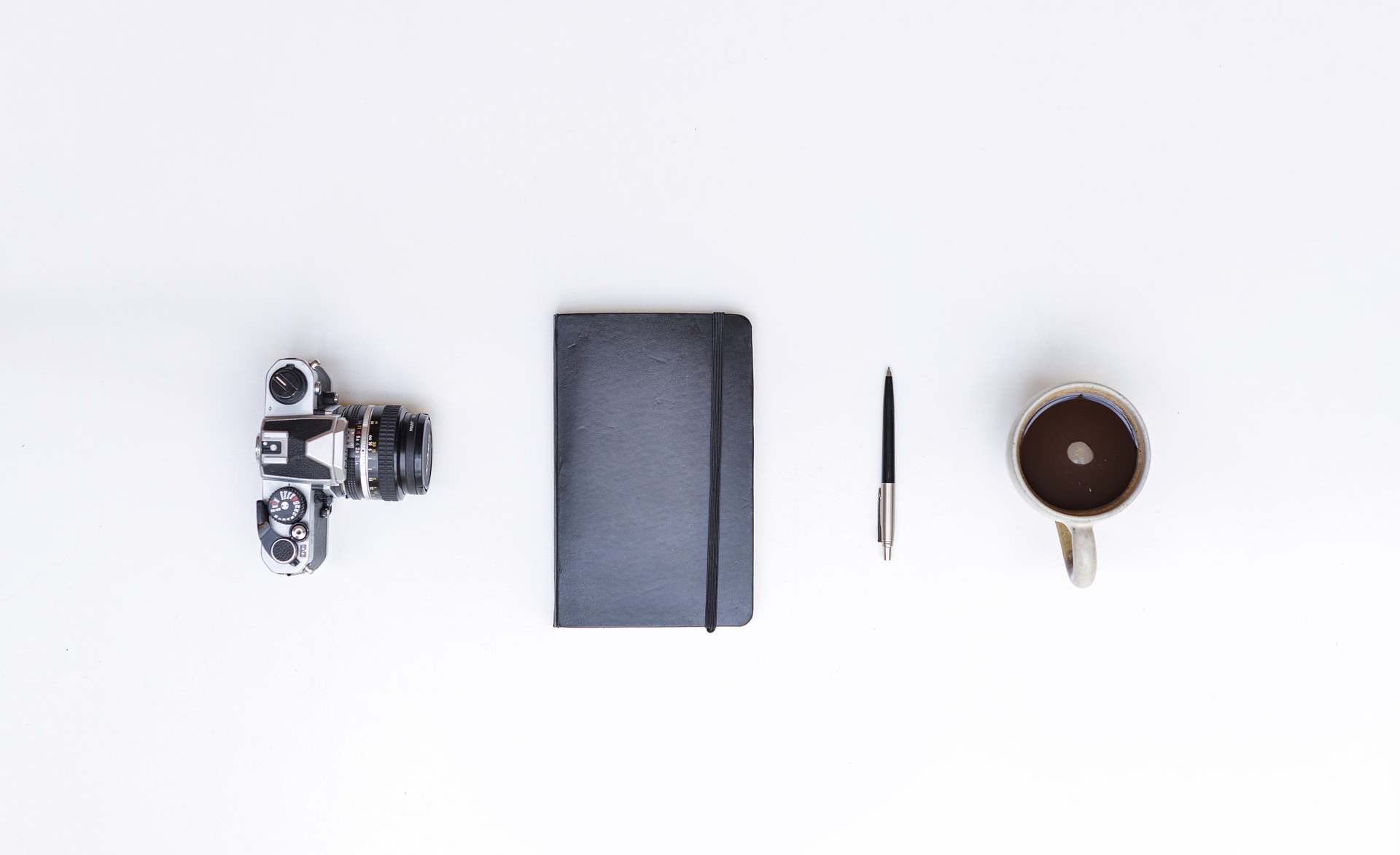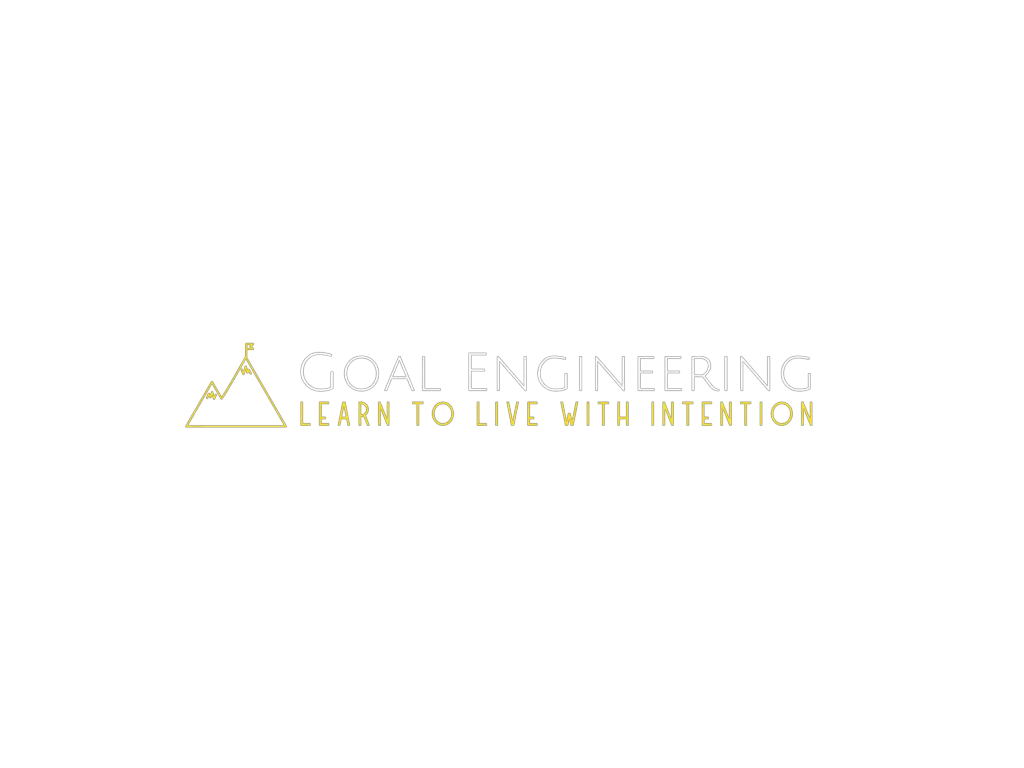Do you frequently experience the frustration of not being able to find a paper buried underneath a pile of clutter? What about forgetting an appointment because your schedule has become too crowded? Or perhaps your mind is so disorganized that you’re stressed out of your mind. These situations aren’t fun, but they also aren’t uncommon. All you need to do to alleviate them and feel peace again is to learn how to organize your life.
The trick to organizing your life is to first divide it into categories. Classify everything you do within the areas of faith, family, finances, or fitness. Then, simply apply this organization method to each aspect of your life, including your mind, time, devices, and physical spaces. Most of all, utilize the power of saying “no” to unimportant uses of your time, energy, brainpower, and physical spaces.
Let’s get into the details of how to do all of these things, starting with some definitions to help us understand the concept of organization better.
Word Math: “How to Organize Your Life”
The definition of Organize, according to Google, is:
“Arrange into a structured whole; order.”And order is “the arrangement or disposition of people or things in relation to each other according to a particular sequence, pattern, or method.”
According to Business Dictionary, organized means:
“Having taken something that is messy, chaotic, or unordered and rearranged it logically, into a structured or coherent layout, or into specific and/or defined groups.”
The next piece of our equation is the word “life.” To define it, we could just say “the condition of living” or “the period between birth and death.” But that’s not nearly specific enough.
Instead, I’m going to take the liberty of dividing “life” into a few categories:
- Mind
- Time
- Devices
- Physical Spaces
This is the perfect example of how breaking down a problem makes it easier to solve. In other words, we’re doing some nifty word engineering here! By breaking it into more pieces, it’s easier to understand what it means to organize your life.
Now let’s bring all of these words and definitions together into one big equation:
To organize your life, you need to take your messy, chaotic, and unordered mind, time, devices, and physical spaces and rearrange them logically into a structured or coherent layout and defined groups.
That’s much more clear now! Let’s dive right into more details on how to do each of these steps!
1. Organize Your Mind by Dividing Everything Into Just 4 Pillars and Setting Only 4 Goals
“Less is more.”
– Mies Van Der Rohe
Everything you do can be categorized into one of four pillars of life:
- Faith
- Family
- Finances
- Fitness
These are my top priorities. They are also how to organize your life and everything in it, including your mind, calendar, devices, and physical spaces.
Why do I do it this way?
It has to do with why I call them pillars. When I’m performing structural engineering calculations for a house, I need to make sure there are enough columns, or pillars, to hold the house up.
If there aren’t enough columns, the house will fall. In the same way, if there aren’t enough pillars to support your life, or if those aspects of your life are weak, then you will be in trouble.
Think about how hard it is to focus on your work and keep your finances strong when you’re unhealthy, for example. Or how relationship struggles also affect your productivity.
Contrast this with how a morning run is scientifically proven to help you concentrate at work. The same can be said of a supportive partner, too.
When each of these 4 pillars is in sync, they work together to produce far greater success than any single one of them can alone. I’ve used this principle to run a marathon, increase my income, spend time with my family, and grow my faith, all at the same time.
Every time you set goals, make plans, or think about anything, consider how it affects and falls into one of the 4 pillars.
When your thinking is organized into these buckets, it’s a lot easier to see what needs attention in your life and what doesn’t.
And, as you’re about to see, this pattern sets a strong foundation for organizing your time, devices, and physical spaces.
2. Organize Your Time by Planning Regularly and Frequently Saying “No”
“Don’t say you don’t have enough time. You have exactly the same number of hours per day that were given to Helen Keller, Pasteur, Michaelangelo, Mother Teresea, Leonardo da Vinci, Thomas Jefferson, and Albert Einstein.”
– Life’s Little Instruction Book, compiled by H. Jackson Brown, Jr.
The best way to go into planning is with a mindset of “if I say yes to this, what am I saying no to?” and a willingness to ruthlessly eliminate unessential tasks from your calendar.
That doesn’t mean you should get rid of everything you think is an inefficient use of your time. The popular idea of “hustling” doesn’t account for the incredible science-backed productivity benefits of taking a break, going for a walk, and even doing nothing.
Now that you know the importance of “no,” you need to get clear on the fact that the most productive and organized people plan often.
The words “plan regularly” frequently come to my mind. I first came across this phrase over 10 years ago as a missionary and have been using it to be successful ever since.
It means that you need to plan yearly, quarterly, weekly, daily, and even hourly.
One of my best productivity tools for busting a disorganized day, week, or month is to make a plan for the rest of the time period no matter where I am at with it.
Even within a day, I sometimes pause to re-write my most important tasks, when I’ll do them, and when I can be done working.
Think of the most organized people that you know. Whether you notice it or not, they are constantly planning. It’s the work that nobody sees that makes them great, and the same is true for you too.
If you want to get organized, you must plan.
3. Organize Your Devices by Using Folders
“Respond to every call that excites your spirit.”
– Rumi
Everything we’ve talked about up to this point has referred to a mentality around organization. Now it’s time to get into the more concrete details, beginning with organizing your phone and computer.
The ultimate trick to both is utilizing folders wisely. This is so much easier when you use the perspective of the 4 pillars.
On all devices, create four folders, one for each pillar, and put everything for that part of your life in that folder.
Organizing Your Computer
The only space I don’t use this for is my computer desktop because I primarily use it for work, so only work files go there. I do organize that space by type of project that I’m working on, though:

You’ll also notice my sticky note in the corner with each pillar and a space for notes on what I’m working on with them. I removed the details just to show you an example of how to make this work for you.
Also, take a closer look at the dock in that screenshot, and you’ll notice that it’s only got a few items in it. That’s part of me saying “no” to unimportant apps and clutter in this digital space.
This can work in the same way if you use Windows, just organize the taskbar in the same way as my dock.
To keep your desktop clean, only allow the few folders and files that you care about most. If you’re using Google Chrome, go into your browser settings and check the option to “Ask where to save each file before downloading.”
That way, you can delegate which folders to send everything to. And if you download pictures to upload somewhere else, put them on your desktop and delete them immediately afterward.
Start using Google Photos to store your pictures if you aren’t already. Once you do that, there is no reason to ever keep a picture file on your desktop again.
And by the way, if you’re not using Google Chrome, switch to it immediately. If you want to stay organized, Chrome is where it’s at.
Organizing Your Phone
Using the same 4 pillars method, create folders or groups of apps according to each of these aspects of your life. I’m on Android, and here’s a screenshot of how I organize my homepage:

For my main screen, I organize apps by the pillars and have my most frequently used individual apps on their own at the bottom.
I only have two other screens. One is for playing media files like podcasts and music, and the other is a fullscreen widget of my calendar.
Additionally, I apply the same “eliminate religiously” mentality to my phone. If you don’t use an app, delete it. Regularly remove apps that you haven’t used in the last month.
If you need an excuse for why you’d need to use an app, get rid of it. The only exception I make for this is Offline Survival Manual.
And please, for your own good, delete Facebook, Instagram, and especially Twitter from your phone. Nobody uses social media on their phones to “connect” as they say they do. That’s just a poor excuse for throwing your time, energy, and happiness down the drain.
Having minimal apps is good for many reasons. For one, your battery will last longer.
You might not realize it, but most apps automatically have permission to work in the background. This is a significant drain on your battery life and data usage.
More importantly, unnecessary apps are just clutter to your mind. When I look at my phone, I’m excited to be there. It’s been a place of learning, inspiration, creativity, and, most of all, organization.
Can you say the same for your phone?
If not, all you need to do is get rid of unnecessary apps and use folders to organize the apps you love!
4. Organize Your Physical Spaces by Throwing a Lot of Stuff Away and Only Keeping What You Love
“Have nothing in your house that you do not know to be useful, or believe to be beautiful.”
– William Morris
If you know about Marie Kondo, you might be sick of hearing about her methods. But the truth is, her idea of taking everything you own and asking yourself, “does this spark joy?” actually works.
Usually, the most cliche things are repeated until we get tired of them because these principles really do make a positive impact in our lives.
Go through everything you own, space by space, and ask yourself if it actually makes you happy. If not, throw it out.
Now, you might argue that you need some items, like this surge protector I’m looking at in my office right now. Of course, it doesn’t spark joy, but I need it. And if I hated the look of it enough, I’d put it behind something or buy one I liked.
In the case of some stuff you think you need, you’re just making an excuse to be sentimental or lazy. Here’s my philosophy:
If, as soon as you pick something up, you make up a reason for why you might need it in the future, you don’t need it.
Plus, if you do end up needing it, you can just buy a replacement anyway! The extra mental strain from having too much junk isn’t worth the ability to just go out and buy those very few things you might need again.
So what should you do if this all seems a little overwhelming?
Start with just one space and turn it into something that you’re proud of. Then work on others. For me, this is my office. I’m happy with everything on my desk, and I’ve hidden away necessary items like stationary inside of it.
How to Use the 4 Pillars to Organize Your Physical Spaces
But wait, what about the 4 pillars? How do they apply to organizing your physical spaces?
Consider how each space has a purpose. Whenever you try to use an area for more than one type of task, it becomes less efficient at helping you fulfill those purposes.
Think about how hard it is to exercise efficiently when your office is also your workout room. You’re worried about hitting things, so you’re less likely to even attempt swinging weights around.
Right now, we have to have our treadmill in our garage, for example. It’s too hot in the summer, the treadmill gets too cold to even run in the winter, and it’s often in the way. We’re going to be buying our own home to fix this soon, though!
Also, every time you use your bedroom to watch TV, work, or do anything but rest and have sex, you significantly decrease the effectiveness of your sleep. That’s because your mind likes to link places and activities.
It’s no wonder that using your phone in your bed makes it hard to sleep! Your mind thinks that being in bed means that it’s time to be entertained, not time to sleep.
Try to have at least one dedicated place for each of the four pillars.
For my faith pillar, for example, I have a specific spot that I go into just to read spiritual books, meditate, and pray.
The dinner table, bedrooms, and backyard are great places to set aside for family time.
Having a separate room for work is beneficial to help your mind get into and out of work mode at the appropriate times. In other words, you can use the same principle that makes being on your phone in bed terrible for you to help you be more productive!
The Benefits of Learning How to Organize Your Life
Let’s recap. There are four pillars of life you should organize everything you think and do into:
- Faith
- Family
- Finances
- Fitness
And these help you organize four distinct areas of your life:
- Mind
- Time
- Devices
- Physical Spaces
All it takes to be organized is to arrange your mind, time, devices, and physical spaces into the categories of faith, family, finances, and fitness.
But how does it improve your life?
For me, it’s improved my productivity, revealed my priorities, helped me do amazing things like run a marathon and start a company, and even kept me focused on my deeper purpose.
That last one might not sound that great at first, but consider how difficult life is when you’re stuck in the daily grind without any meaning.
You’re pretty miserable, you don’t know it, and you don’t realize that your inability to organize various aspects of life is getting in the way of you reaching your full potential.
In the same way that having a messy room can make you stumble, fall, and hurt yourself, a disorganized life makes it difficult to move forward. When your life is in constant disarray, there will always roadblocks that keep you from becoming your best self.
So if you’re frustrated with not being able to find papers under a pile of clutter, get organized.
If you constantly miss important appointments and meetings because of your overcrowded schedule, get organized.
And most of all, to free yourself from the restrictions that limit you from reaching your full potential, get organized.
You deserve it. So make it happen.
I promise it will change your life because it’s changed mine.





